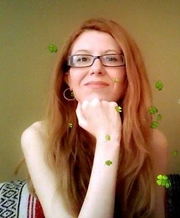|
7/11/2016 0 Comments How to Become a Confident Speaker
By Lidiya Angelova-Duleva
Public speaking is not a usual part of the science curriculum, despite the many group meetings and conference presentations that students—and employed scientists!—need to do. Standing and speaking in front of an audience can be overwhelming, even for a naturally good speaker. When I was in high school, I was terrified of presenting, but after attending lots of conferences, making my own presentations, and a year’s membership in the Toastmasters (a communication and leadership development group), I learned that being a good speaker is not difficult, and anyone can learn how to do it. Here are some useful tips that I learned:
Helpful resources: https://www.ted.com/playlists/226/before_public_speaking http://storage.ted.com/tedx/manuals/tedxspeakerguide.pdf https://www.toastmasters.org/Resources/Public-Speaking-Tips 
About the Author
Lidiya’s curiosity about “how the life works” led her to complete a Master’s degree in Biology and a PhD in Microbiology. Science gave her more questions than answers and after a few years as a postdoc at the National Institute of Health in Rockville, MD, USA, she decided to pursue her “first” love in writing. Not long after that, she became a mom of a wonderful girl, who is a very energetic toddler now. She loves to travel and has lived in many countries; she is still looking for a place to settle down. Lidiya is thrilled to be a part of the Scientista bloggers team, and loves being able to connect with lots of wonderful young, and already established female scientists, while writing about science, life and everything else. Comments? Leave them below!
0 Comments
Your comment will be posted after it is approved.
Leave a Reply. |
CONNECT WITH USSUBSCRIBE |
The Scientista Foundation, Inc. All Rights Reserved © 2011-2021 | Based in NY | [email protected]
The Network for Pre-Professional Women in Science and Engineering
The Scientista Foundation is a registered 501(c)(3) -- Donate!
The Network for Pre-Professional Women in Science and Engineering
The Scientista Foundation is a registered 501(c)(3) -- Donate!


 RSS Feed
RSS Feed